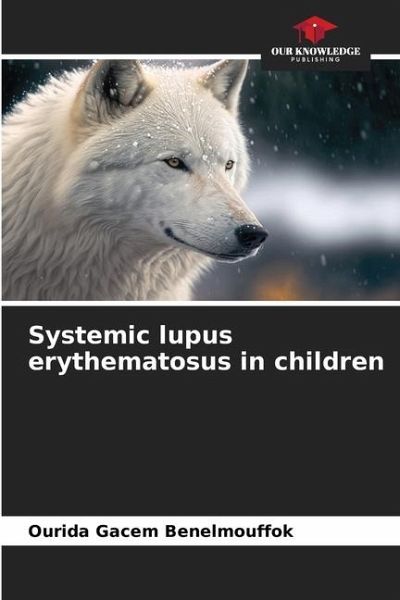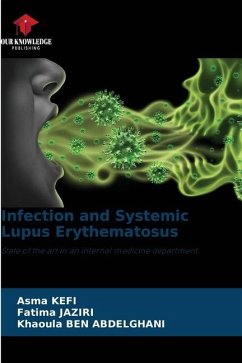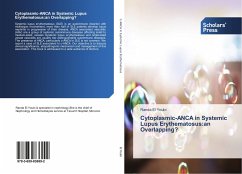
Systemic lupus erythematosus in children
Versandkostenfrei!
Versandfertig in 6-10 Tagen
40,99 €
inkl. MwSt.

PAYBACK Punkte
20 °P sammeln!
Systemic lupus erythematosus in children is a chronic, systemic and autoimmune disease whose diagnosis is not always easy. Its clinical expression is heterogeneous with sometimes atypical manifestations contributing to diagnostic error. This entity is distinguished by severe damage, notably renal, neurological and hematological damage, the outcome of which can be serious. These individualizations pose a real diagnostic challenge. The lack of pediatric studies regarding treatment makes targeted and adequate care difficult. It is most often based on a heavy therapeutic arsenal in a growing being...
Systemic lupus erythematosus in children is a chronic, systemic and autoimmune disease whose diagnosis is not always easy. Its clinical expression is heterogeneous with sometimes atypical manifestations contributing to diagnostic error. This entity is distinguished by severe damage, notably renal, neurological and hematological damage, the outcome of which can be serious. These individualizations pose a real diagnostic challenge. The lack of pediatric studies regarding treatment makes targeted and adequate care difficult. It is most often based on a heavy therapeutic arsenal in a growing being. The use of these medications with a good benefit/risk balance could avoid considerable comorbidity. Hydroxychloroquine is experiencing renewed interest, after having proven its beneficial effects; its therapeutic and preventive properties on relapses and control of lupus disease. The progression can be marked by uncontrolled attacks which can compromise the vital prognosis. Complications may concern the organs initially affected or other visceral damage.












